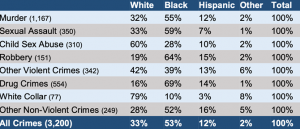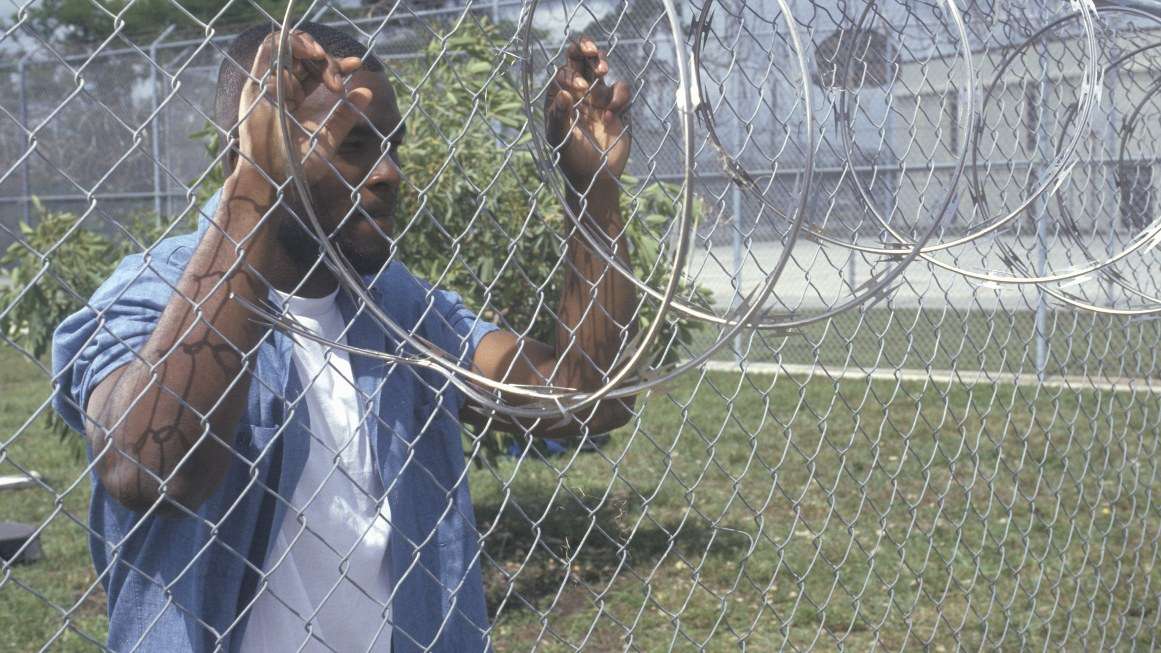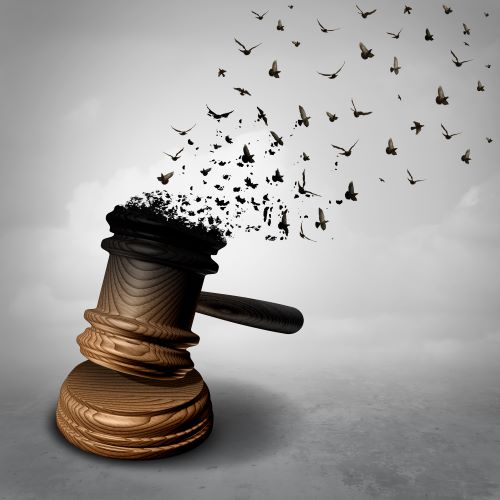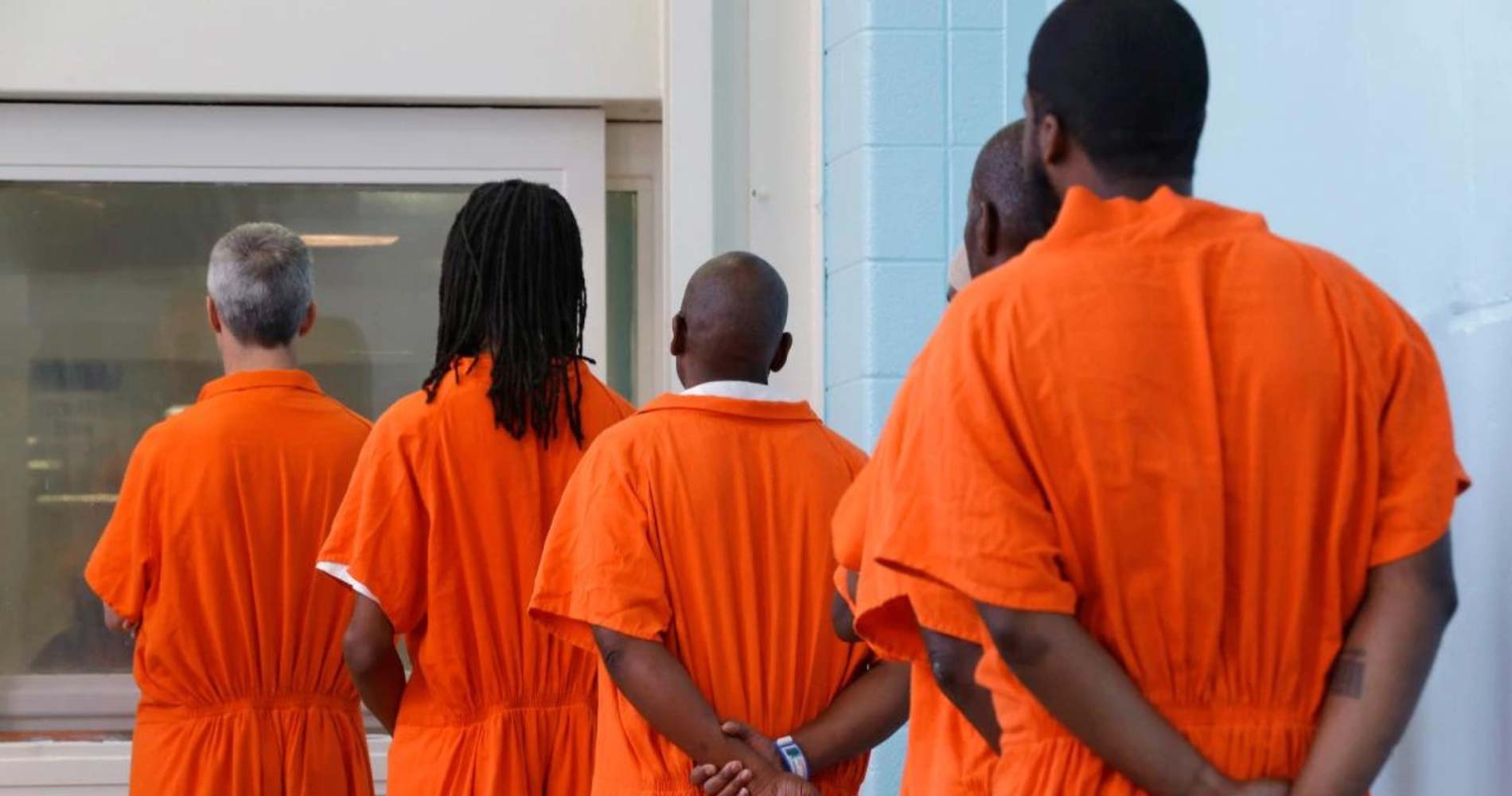- Mar 11, 2015
- 101,638
- 111,656
- 3,645
And that's why it isn't a valid argument relative to crime and race. Blacks are 14 percent of the population but face the most wrongful incarcerations. This is another example of systemic racism.

According to the Report, Black Americans account for only 13.6% of the United States population, but comprise 53% of exonerations since 1989. Therefore, Black Americans are seven times more likely to be falsely convicted of serious crimes than white Americans. The three types of crimes that result in the largest numbers of exonerations are murder, sexual assault, and drug crimes.
Notice that blacks were 55 percent of those falsely convicted of murder, which means that the rate of black murders is much lower than what people here on the right want to argue. I use murder because this is the only crime the right there uses to argue about race and crime.

 reason.com
reason.com


 eji.org
eji.org

 www.tully-weiss.com
www.tully-weiss.com
 legalknowledgebase.com
legalknowledgebase.com
We are disproportionately wrongfully convicted of crime. There is only one reason this happens, and it is not going t be due to most of the things that are going to be said by the right wing whites wh choose to respond.
Race and Exonerations: Why Black Defendants Are More Likely To Be Wrongfully Convicted
In September of 2022, the National Registry of Exonerations released a Report (the “Report”) demonstrating that Black Americans are significantly more likely to face wrongful convictions than their white counterparts. The National Registry of Exonerations tracks all known wrongful convictions in the United States since 1989. The Report was made through the joint efforts of the University of California Irvine Newkirk Center for Science and Society, the University of Michigan Law School, and Michigan State University College of Law. The Registry’s first Report on race and wrongful convictions was released in 2017. The September 2022 Report contains more information and detail than the 2017 Report, along with improved data.
According to the Report, Black Americans account for only 13.6% of the United States population, but comprise 53% of exonerations since 1989. Therefore, Black Americans are seven times more likely to be falsely convicted of serious crimes than white Americans. The three types of crimes that result in the largest numbers of exonerations are murder, sexual assault, and drug crimes.
Notice that blacks were 55 percent of those falsely convicted of murder, which means that the rate of black murders is much lower than what people here on the right want to argue. I use murder because this is the only crime the right there uses to argue about race and crime.

Why are half of all U.S. exonerations of black prisoners?
Black people represent less than 15 percent of the U.S. population, but they account for more than half of all exonerations, according to a new report released today.

Black defendants make up more than 50% of exonerations since 1989, new report says
The ABA Journal is read by half of the nation's 1 million lawyers every month. It covers the trends, people and finances of the legal profession from Wall Street to Main Street to Pennsylvania Avenue.
www.abajournal.com

Study Shows Race Is Substantial Factor in Wrongful Convictions
Race is a substantial factor in why people are wrongly convicted.

People of Color More Likely to Be Wrongfully Convicted
It's not exactly a “stop the presses” moment, as defense attorneys have long suspected African-Americans and other people of color are more likely to be wrongfully convicted, but now a new study by the National Registry of Exonerations (NRE) has the statistics. Behind those stats are wasted lives...
What race has the most cases of wrongful convictions?
Race is central to every aspect of criminal justice in the United States. The conviction of innocent defendants is no exception. Thousands of exonerations
We are disproportionately wrongfully convicted of crime. There is only one reason this happens, and it is not going t be due to most of the things that are going to be said by the right wing whites wh choose to respond.
Last edited:
